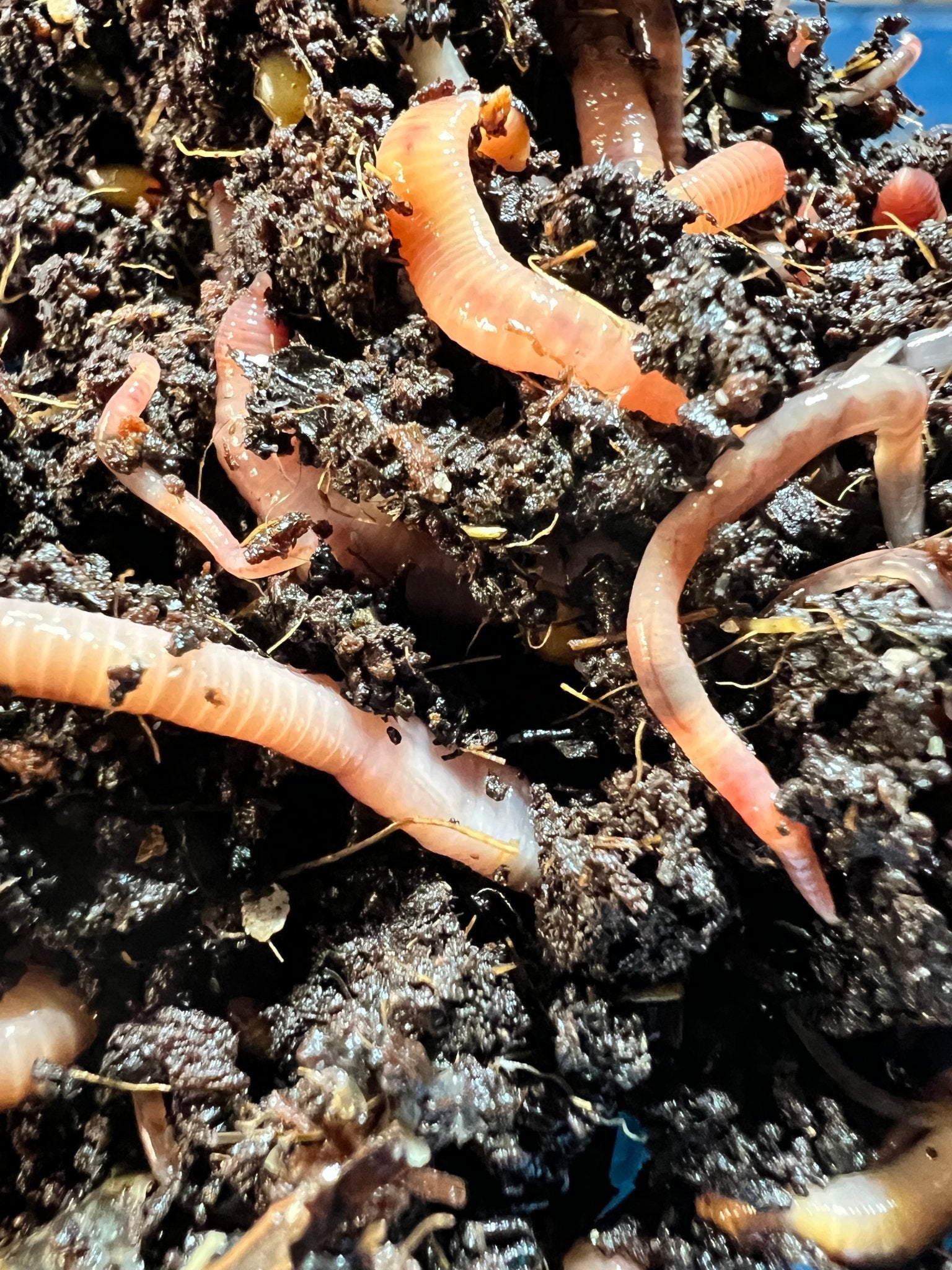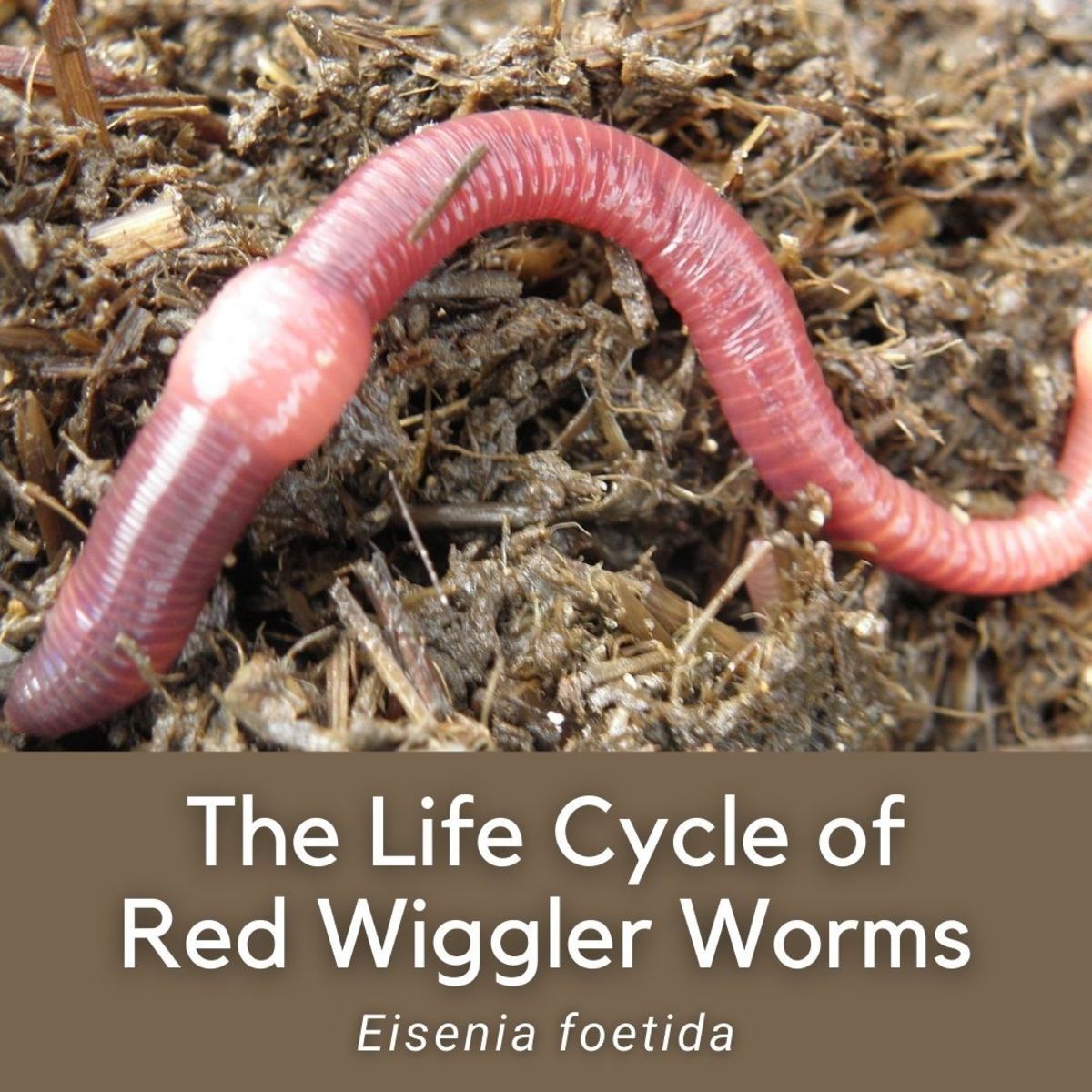Red Wiggler Worms - Vital for Healthy and Productive Gardens
Red Wiggler Worms - Vital for Healthy and Productive Gardens
Blog Article
Checking Out the Fascinating World of Red Wiggler Worms: Sustainable Solutions for Waste Administration and Soil Health
Within the elaborate web of lasting services for waste management and dirt wellness, one typically neglected yet greatly helpful gamer emerges - the red wiggler worm. These modest creatures, with their voracious appetite for raw material, hold the trick to changing waste into nutrient-rich garden compost. As we peer right into the remarkable world of red wigglers, a much deeper understanding of their duty in the ecosystem unravels, clarifying their prospective to change the means we come close to waste disposal and dirt fertility.
The Function of Red Wigglers in Waste Administration
Making use of red wiggler worms in waste administration processes demonstrates a reliable and lasting approach for raw material decomposition. These starved composting champions belong to the types Eisenia fetida and are renowned for their capacity to break down food scraps, paper, and various other organic materials into nutrient-rich garden compost. Red wigglers stand out in transforming kitchen area waste and garden debris right into vermicompost, an important resource that can enhance dirt fertility and structure.
Red wigglers play an important duty in waste monitoring by taking in and digesting raw material, consequently decreasing the quantity of waste that finishes up in land fills. Their digestion process not only assists to divert waste from standard disposal methods yet also generates high-quality compost that can be utilized in farming, landscaping, and gardening. The castings left behind by red wigglers are rich in necessary nutrients like potassium, nitrogen, and phosphorus, making them a sustainable and natural option to chemical plant foods - Red Wiggler Worms.
Benefits of Vermicomposting With Red Wigglers

One key advantage is the speed at which red wigglers break down natural products. These worms have a ravenous hunger and can refine large quantities of food waste quickly, leading to faster garden compost production compared to typical approaches. Furthermore, the vermicompost produced by red wigglers is abundant in important nutrients like nitrogen, phosphorus, and potassium, making it an exceptional organic fertilizer for plants.
In addition, vermicomposting with red wigglers helps draw away natural waste from landfills, lowering greenhouse gas emissions and contributing to an extra sustainable waste management system. By recycling natural issue via vermicomposting, communities and people can minimize their environmental impact while creating a valuable resource for improving dirt structure and fertility. In general, the benefits of vermicomposting with red wigglers make it a economical and environmentally friendly remedy for handling organic waste and boosting dirt wellness.
Red Wigglers: Nature's Soil Engineers
Understood for their impressive capacity to change the composition and high quality of soil, red wigglers play an important function in improving ecosystem dynamics with their dirt design prowess. These modest earthworms burrow with the soil, creating passages that enhance aeration and water infiltration. By doing so, they facilitate origin development and nutrient uptake by plants, eventually contributing to raised dirt fertility. Red wigglers likewise break down raw material like rotting leaves and plant debris, transforming them into nutrient-rich castings that enrich the dirt with essential minerals and valuable microorganisms. In addition, their constant activity assists to blend soil layers, distributing nutrients much more evenly and producing a healthy and balanced atmosphere for dirt organisms.

Red Wigglers and Dirt Wellness
With their profound influence on dirt structure and community dynamics, red wigglers contribute in nurturing dirt health via their varied dirt engineering tasks. These humble creatures play a crucial function in boosting dirt click over here fertility and structure. Red wigglers break down natural matter, such as decomposing fallen leaves and cooking area scraps, right into nutrient-rich spreadings that improve soil top quality. Their burrowing tasks create tunnels that freshen the soil, allowing better water infiltration and origin development. By enhancing microbial activity in the dirt, red wigglers aid in vitamins and mineral biking, making vital nutrients much more readily available to plants. Their castings include useful microbes that help subdue damaging virus, advertising look at this website plant health. Red wigglers likewise add to dirt gathering, which boosts dirt structure and stability, minimizing disintegration risks. Generally, the presence of red wigglers in the dirt is a clear sign of a healthy and vibrant environment, showing the necessary role they play in keeping dirt health and wellness and sustainability.
Implementing Red Wigglers for Sustainability
The assimilation of red wiggler worms into lasting farming practices showcases their critical role in fostering environmental stewardship and source efficiency. When executed attentively, these industrious creatures offer a wide range of advantages. By introducing red wigglers right into composting systems, natural waste can be successfully exchanged nutrient-rich vermicompost, minimizing the demand for chemical plant foods and closing the loophole on natural issue use. Moreover, the spreadings created by red wiggler worms are rich in advantageous microbes and enzymes that boost soil structure, improve water retention, and promote plant growth.
Along with lose monitoring, red wigglers also play a vital function in sustainable food manufacturing. Their capability to quickly refine raw material not just decreases greenhouse gas emissions from disintegrating waste however likewise provides a lasting source of protein for animals and aquaculture feed. Integrating red wiggler worms into agricultural systems stands for a basic yet powerful remedy for enhancing sustainability, advertising round economic climates, and preserving our valuable natural deposits.
Conclusion
In verdict, red wiggler worms play a crucial function in waste management through vermicomposting, profiting both the environment and dirt wellness. Their capacity anonymous to damage down natural issue and boost soil framework makes them valuable allies in lasting methods. By applying red wigglers into waste management systems, we can lower waste, enrich soil quality, and advertise ecological sustainability for a much healthier world.
Understood for their remarkable capability to change the make-up and top quality of soil, red wigglers play a critical function in improving ecosystem dynamics through their dirt design expertise. Overall, red wigglers are essential soil designers that play an essential function in keeping dirt health and wellness and advertising lasting ecological community operating.
With their profound impact on soil make-up and environment characteristics, red wigglers are crucial in supporting dirt wellness through their diverse dirt engineering activities. Red wigglers also add to soil gathering, which boosts soil framework and security, decreasing disintegration risks. On the whole, the presence of red wigglers in the soil is a clear indication of a dynamic and healthy and balanced ecological community, demonstrating the crucial role they play in keeping soil health and sustainability.
Report this page